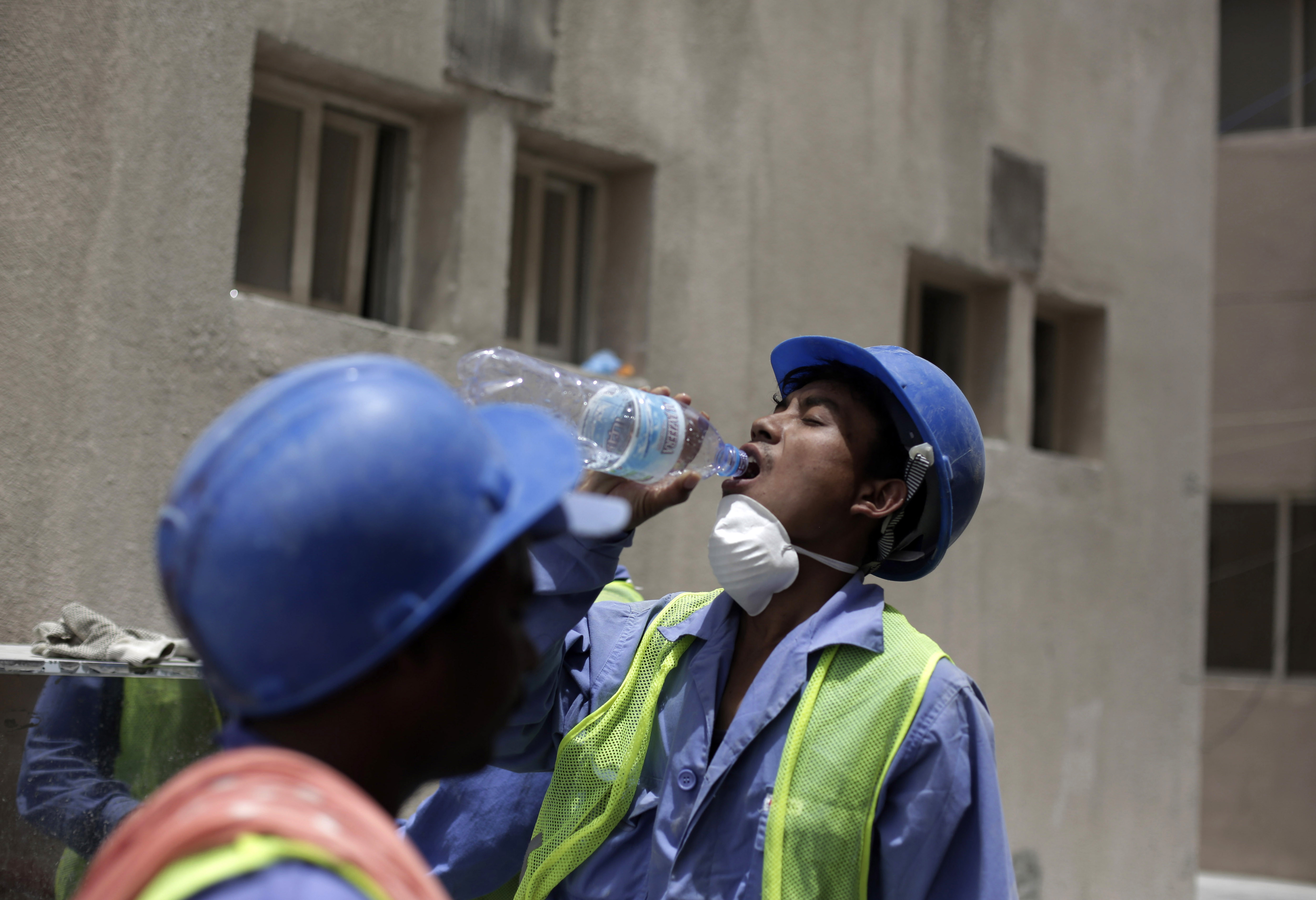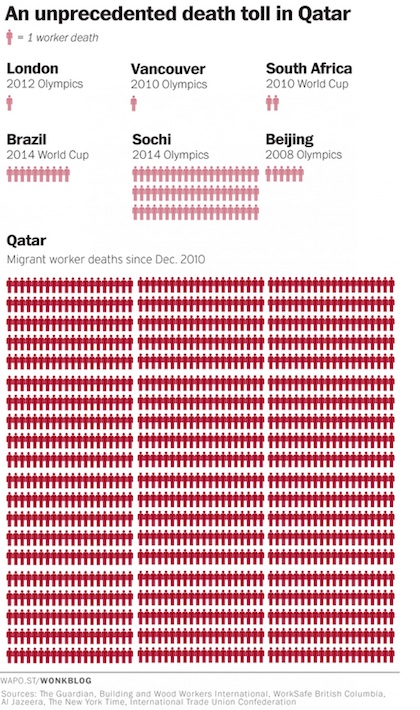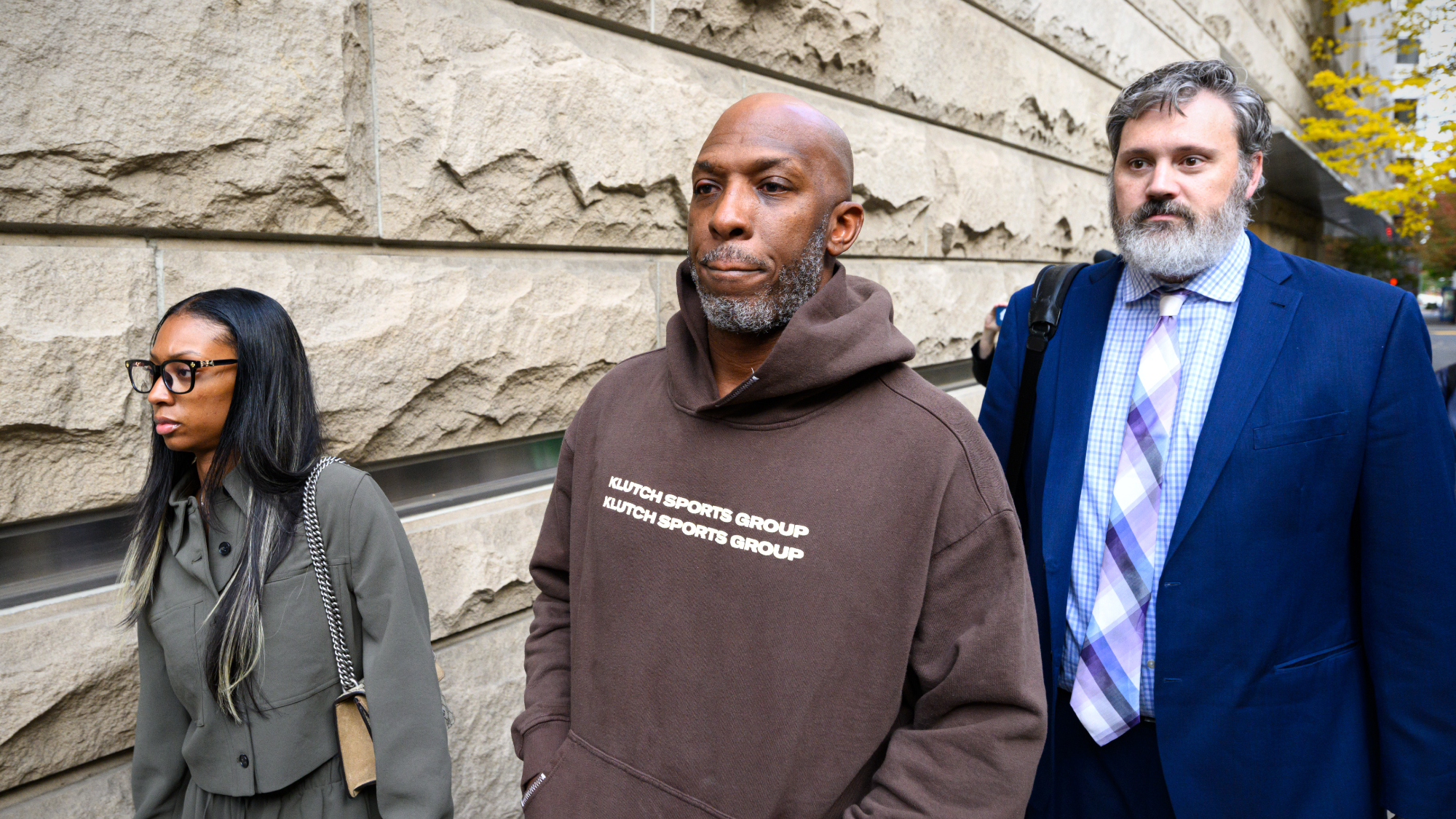An estimated 4,000 workers could die in Qatar before the 2022 World Cup


A free daily email with the biggest news stories of the day – and the best features from TheWeek.com
You are now subscribed
Your newsletter sign-up was successful
To any soccer fan who has been following the practices of FIFA throughout the past decade, it's no surprise that the world's governing soccer organization is terribly corrupt. It's a little more surprising, however, that FIFA is finally being held accountable — to the tune of $150 million and charges of bribery, fraud, and racketeering.
"On the surface, it's just another white collar crime story: rich, powerful men making themselves richer and more powerful," says Christopher Ingraham at The Washington Post. "But a closer look suggests that there is a lot of real-world suffering happening as a direct result of FIFA's decisions." Ingraham put together a fascinating chart that maps out the estimated human toll of building the stadiums and facilities necessary to hold the World Cup in Qatar in 2022, and the result is startling:

The Week
Escape your echo chamber. Get the facts behind the news, plus analysis from multiple perspectives.

Sign up for The Week's Free Newsletters
From our morning news briefing to a weekly Good News Newsletter, get the best of The Week delivered directly to your inbox.
From our morning news briefing to a weekly Good News Newsletter, get the best of The Week delivered directly to your inbox.
While Ingraham's graphic is an estimate (he explains how he arrived at this comparison here), this rough approximation of the potentially World Cup-related deaths of migrant workers in Qatar is undoubtedly shocking. Even worse, the Post points out that the International Trade Union Confederation estimates that in addition to 1,200 migrant worker deaths so far, up to 4,000 additional workers could die in Qatar in the run up to the 2022 World Cup.
For a full explanation of how Ingraham arrived at these bleak estimates, head over to The Washington Post.
A free daily email with the biggest news stories of the day – and the best features from TheWeek.com
Samantha Rollins is TheWeek.com's news editor. She has previously worked for The New York Times and TIME and is a graduate of Northwestern University's Medill School of Journalism.
-
 Local elections 2026: where are they and who is expected to win?
Local elections 2026: where are they and who is expected to win?The Explainer Labour is braced for heavy losses and U-turn on postponing some council elections hasn’t helped the party’s prospects
-
 6 of the world’s most accessible destinations
6 of the world’s most accessible destinationsThe Week Recommends Experience all of Berlin, Singapore and Sydney
-
 How the FCC’s ‘equal time’ rule works
How the FCC’s ‘equal time’ rule worksIn the Spotlight The law is at the heart of the Colbert-CBS conflict
-
 2 MLB pitchers charged with rigging throws for bets
2 MLB pitchers charged with rigging throws for betsSpeed Read Cleveland Guardians pitchers Emmanuel Clase and Luis Ortiz have been indicted
-
 FBI nabs dozens in alleged NBA gambling ring
FBI nabs dozens in alleged NBA gambling ringSpeed Read Portland Trail Blazers head coach Chauncey Billups and Miami Heat guard Terry Rozier are among 34 people indicted in connection with federal gambling investigations
-
 Trump orders NFL team to change name, or else
Trump orders NFL team to change name, or elseSpeed Read The president wants the Washington Commanders to change its name back to the 'Redskins'
-
 Thunder beat Pacers to clinch NBA Finals
Thunder beat Pacers to clinch NBA FinalsSpeed Read Oklahoma City Thunder beat the Indiana Pacers in Game 7 of the NBA Finals
-
 MLB lifts ban on Pete Rose, other dead players
MLB lifts ban on Pete Rose, other dead playersspeed read 16 deceased players banned for gambling and other scandals can now be inducted into the Baseball Hall of Fame
-
 Canada beats US in charged 4 Nations hockey final
Canada beats US in charged 4 Nations hockey finalSpeed Read 'You can't take our country — and you can't take our game,' Prime Minister Justin Trudeau posted after the game
-
 Eagles trounce Chiefs in Super Bowl LIX
Eagles trounce Chiefs in Super Bowl LIXspeed read The Philadelphia Eagles beat the Kansas City Chiefs 40-22
-
 Indian teen is youngest world chess champion
Indian teen is youngest world chess championSpeed Read Gukesh Dommaraju, 18, unseated China's Ding Liren
